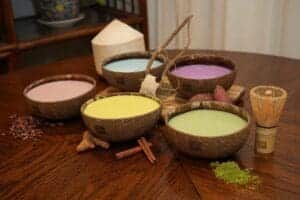There’s a lot of debate about the safety of drinking kava nectar. Much of the debate comes from myths and misunderstandings about kava’s effects. But when you look at the research and cultural history, kava is safe to drink.
There are topics in particular that have raised eyebrows about kava’s impact on its users. The first is the question of whether kava causes liver damage, and the second is if kava is addictive.
It doesn’t hurt your liver
Despite the long-held myth that kava causes liver damage, a report published by the World Health Organization conducted an in-depth investigation. It concluded that kava is safe and that the root itself wasn’t the cause of the reported liver damage. Kava has been around for centuries, and there have been no reports of liver issues in any of the Pacific islands from where it comes.
This suspected issue was using kava with other substances, be that alcohol, drugs, or other medications. It was also the time that Pfizer came out with Zoloft, their premier anti-anxiety medication. So some even suggest the rumors were spread in fear that kava would be preferred to their drug. A German study done around this time was what sealed it, claiming they found increased liver enzymes (that can lead to liver damage) in participants who took kava extract. It was later found that the liver damage was likely due to pre-existing conditions and interactions with other medications.
Kava nectar non-addictive
There is a huge misunderstanding that kava is addictive. Many of the stories around this date back to colonial times when non-natives arrived at the islands and saw the strength of kava culture but didn’t understand it. Add the fact that it was often being used with other things, like alcohol, and it’s not surprising people were confused.
There are two kinds of addiction; chemical addiction and behavioral addiction. Chemical addiction is what happens in most drugs and alcohol. The chemical makeup of your brain changes so that you become physically dependent on it. Behavioral addiction is when you become addicted to the feeling or habit of something. There are no physical changes, but the feeling or habit of doing something is addictive. Unlike alcohol and other substances, kava nectar is safe to use because it doesn’t change your brain structure. So there is no physical dependence like other drugs or alcohol.
In fact, because the effects of kava nectar are so similar to alcohol, it’s been used as a recovery tool in several alcohol and drug addiction programs.
Kava nectar has limited side effects
Some side effects of using kava have been reported. Although, many of those are connected to the cultivar of kava being used. For instance, wild kava known as Tudei kava, is known to contain certain kavalactones that give you nausea, headache and diarrhea and can last up to two days. For this reason, it is not recommended that Tudei kavas be used recreationally. are known in the kava world to be undesirable to use.
Most side effects come when you’ve taken too much. You’ll feel excessively tired if you take too much of a heavy kava. And you may feel incredibly blissful if you take too much of a heady kava. As with anything you take, being informed about dose and how it works is important.
Things to be aware of
Like any substance we take, it’s important to understand all the effects. While kava itself isn’t chemically addictive, some people may become addicted to how kava makes you feel, if they use it too much. Like any substance or medication, it’s important to use kava responsibly and know the best dose and your own limits for the best experience.
Another thing to be aware of is what other things (medication or drugs) you are taking. It’s important to be aware of any contraindications, that is how kava might interact negatively with other things you are taking. We know that kava is safe on its own, but like many medications, it shouldn’t be taken with certain other substances.
The last thing we’ll mention is knowing the type of kava you are drinking. Kava has two main effects: light and joyful on your mind, known as “heady” or calming, and muscle relaxing, known as “heavy”. Generally, heady kavas are drunk during the day when you are being social. Heavy kavas are best used at night before going to bed. They also have different strengths. So like alcohol, it is possible to drink too much. However, it takes a lot more kava to impair you and won’t leave you totally out of it like alcohol can.
It’s important to consider all of these things when using kava nectar and remember that anything comes with risks, even drinking too much coffee or eating too much chocolate.
Don’t be scared off
The reality is that most people don’t understand or know how kava nectar works, which makes it scary. But the truth is that other things we use, like alcohol, may be even more dangerous for us, we are just more familiar with it so it feels safer. You can check out our article here, which discusses how kava works in the brain. But if you give it a chance, you may have another great natural way to relax, with a rich tradition to accompany it.
* Please note that the majority of kava research pertains to kava extracts, which often undergo significant processing and may contain additional ingredients and fillers that can influence their efficacy. It is crucial to consider this distinction when reading about kava studies. To draw an analogy, enjoying natural kava as a beverage can be likened to experiencing a freshly brewed cappuccino, whereas kava extracts are akin in functionality to a caffeine pill. Both forms have their unique benefits and can cater to different preferences and needs. While it’s helpful to understand research on kava extracts, please view it critically and remember that natural kava offers a uniquely holistic experience.







